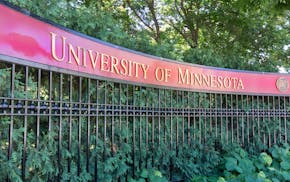September 2, 2009
On this day in 1885, a bunch of racist white miners in Wyoming assaulted and murdered their Chinese coworkers:
http://www.history.com/this-day-in-history.do?action=Article&id=4262
Something that's been swimming around in my mind is the idea of the American working class = white. Coming from a working class or working poor family myself (back in the day before I went to college, the word we used for ourselves was poor), it always perplexed me why whites were seen as the only people who work. As a child, since they couldn't afford daycare, often my mom and dad would take me to work. I'd sit in the break room drawing pictures of dragons and elves waiting for my mom and dad to come in and see me during their 15 minute break. (As a side note, I'm pretty sure this is also where my addiction to coffee and non-dairy creamer began). But the people my parents worked with, and whom I would later work with at my first job at Cub Foods during High School, were African American and African immigrants, whites, Latinos, Southeast Asians and South Asians, Native Americans, Arabs. It wasn't necessarily a happy multicultural eggroll appreciation fest every day, but the point is, we worked together.
So why does the mention of working class, especially working class activist, usually conjure the image of a white people (usually men) in the American consciousness? Of course there are working class whites, and a lot of them: that's not my point. The point is, why are the rest of us left out? We just need to look at racial stereotypes to see why this may be: African Americans and Native Americans as welfare dependents, Latinos as illegal immigrants undercutting American (translated: white) workers, Asians and Arabs stealing American (white) jobs.
There's also the virulent history of racism in the American labor movement, and a specific and invisible racism against Asian Americans. Many icons of the American labor movement were members of violent anti-Asian groups. Asian Americans are also, predictably, left out of leftist working class histories. Even in a book like Howard Zinn's A People's History of the United States fails to link the violence and racism against Asian Americans with the invisibility of Asian Americans in labor activism and organizing. Which is not to say we didn't organize. On the contrary, Asian Americans have a long history of labor organizing, often outside of the mainstream labor movement, because of this racism.
And of course, I'm not the first person to point this out. Scholars and activists such as Glenn Omatsu have done much more thorough research and better writing on this subject than I. In particular, I'd encourage folks to read his excellent essay, "Racism or Solidarity? Unions and Asian Immigrant Workers, which was published in the 1995 Radical Teacher magazine (and I'd like to thank my partner for suggesting the article to me in the first place).

Teen suspect in Nudieland mass shooting arrested on murder, assault charges
'Human error' behind Robbinsdale shelter-in-place alert that was mistakenly sent countywide

Going to Wolves or Twins tonight? How to get there (and maybe avoid traffic).
Focusing on bringing football film into frame

